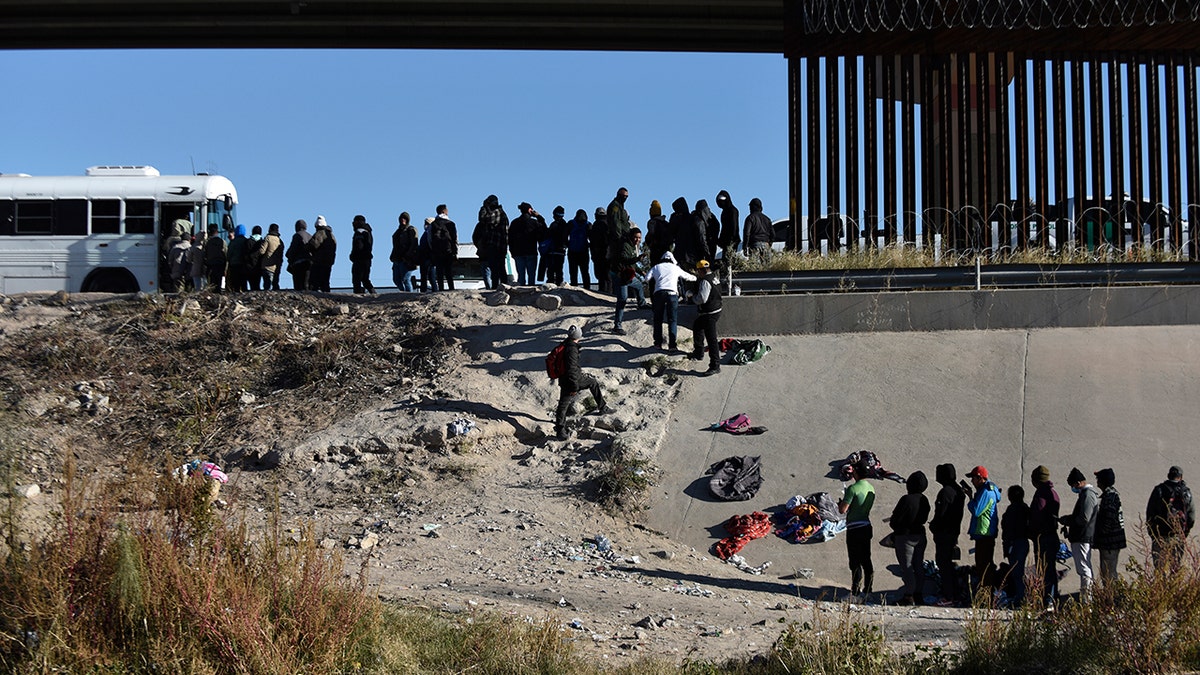Border Patrol Council on Senate omnibus bill: 'Very disappointed'
National Border Patrol Council VP Hector Garza weighs in on the ongoing border crisis as officials continue to be overwhelmed by migrant influx on 'Your World.'
In a Friday night release before Christmas, U.S. border authorities reported a record number of encounters with migrants in November as officials worry about the impacts of the impending expiration of Title 42.
U.S. Customs and Border Protection (CBP) said the agency saw 233,740 encounters along the southwest border, a 1% increase from October. At least 16% of the migrants encountered had at least one prior encounter in the past year, the agency said.
Nearly 67,000 of those encountered were processed for expulsion under Title 42.
CONGRESS GIVES ITSELF A CHRISTMAS PRESENT: A HUGE FUNDING BOOST IN THE $1.7T SPENDING BILL

Migrants wait to get into a U.S. government bus after crossing the border from Ciudad Juarez, Mexico, to El Paso, Texas on Monday. Border authorities reported 233,740 migrant encounters along the southwest border for November. (AP Photo/Christian Chavez, File)
"Individuals from Mexico and northern Central America accounted for just 30% of unique encounters in November, a significant drop from the 53% they represented a year ago, as more migrants arrive from a variety of other countries, including Cuba and Nicaragua," said CBP Acting Commissioner Troy Miller.
CBP sources told Fox News there were at least 73,000 migrants who were not apprehended by authorities in November alone. Those figures are not reflected in the figures released Friday.
A large of migrants fleeing communist regimes has contributed to the increase in migrants trying to cross the border, CBP said.
"Venezuelans, which previously constituted a part of that increase, continue to arrive at far lower numbers as a result of the migration enforcement process that includes expulsions to Mexico and lawful pathways," the agency said. "Venezuelans have dropped from roughly 1,100 a day the week before that process was announced, to roughly 100 a day consistently throughout November."
The increasing number of migrants comes as officials continue to worry about the impacts on the border if Title 42 expires. The Trump-era public health order was used to justify the turning away of millions of migrants during the pandemic.
CLICK HERE TO GET THE FOX NEWS APP
The policy was set to end Wednesday, but the U.S. Supreme Court delayed that order and is hearing last-minute arguments from the Biden administration that wants to end the policy, and 19 Republican-led states that want to keep it in place.












































